Here's every violation issued by the city of Albany over the last three winters for not shoveling a sidewalk
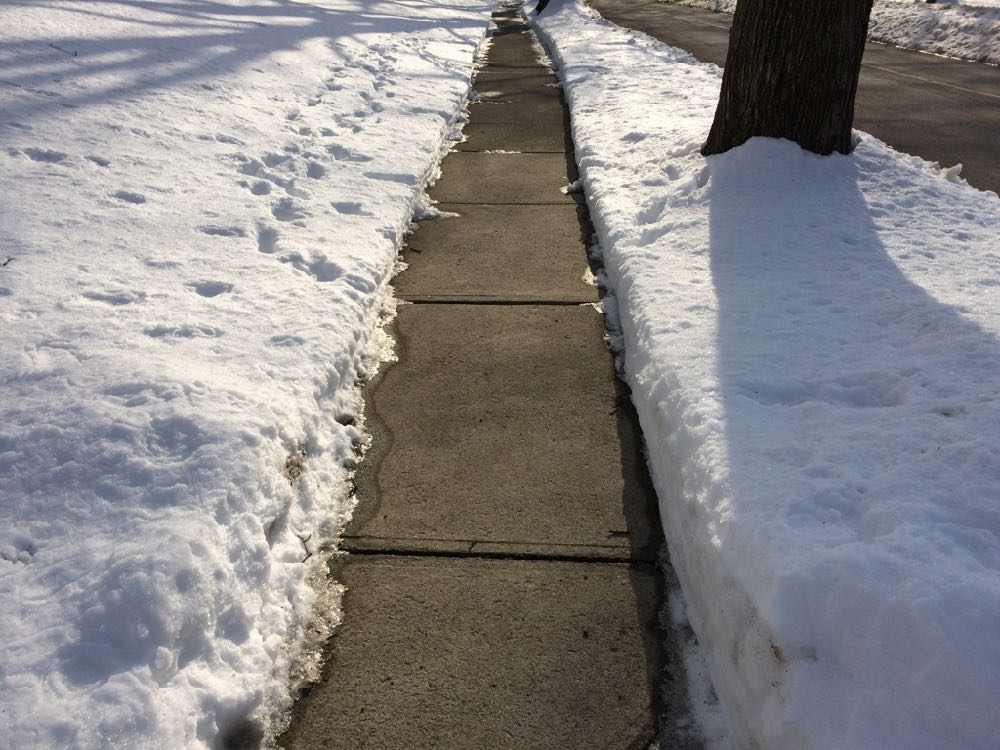
That's how it should be done.
Albany got an early start on its annual discussion of the topic of snowy sidewalks -- shoveled and unshoveled -- this fall when the Common Council approved a tightening of the city's grace period for how long property owners have to clear walks before there's a fine.
There were a lot of claims and speculation thrown around about who would be affected by the change. And while we can't see into the future, we can flip through the past.
So that's just what we did.
We looked at every violation the city of Albany issued over the past three winters for not clearing a snowy sidewalk, and uncovered a few things.
Basics on the numbers
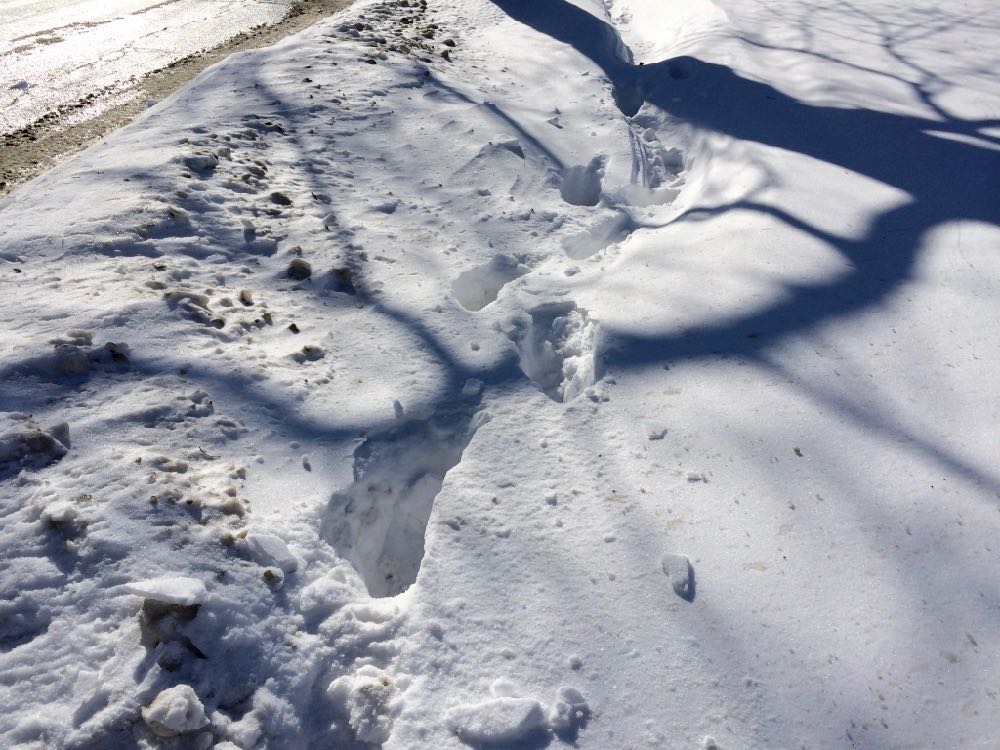
We filed a FOIL request with the city of Albany for every sidewalk snow clearing violation issued from October 1, 2014 to May 1, 2017.
There were 342 violations issued by the city across those three winters. Or, really, to be specific, two winters -- the city records indicate it didn't issue any sidewalk clearing violations for the 2015-2016 winter. (That was a weird, very un-snowy winter.)
There are a few graphs at the top showing when the violations were issued relative to snowfalls -- click or scroll all the way up.
Added up, those violations equaled $64,803.23 being collectively billed to property owners. Of that sum, $43,446.60 was for labor and $31,100 was for fines.
Here's the fine structure for unshoveled sidewalks as laid out in the city code:
+ First violation: $100
+ Second violation within three months: $200
+ Third violations within three months: $300
+ Each violation after that within six months: $300
The city can also charge the property owner for the cost of the labor for clearing the walk, and by law, that amount is no less than $75.
As has been the rule, and will continue to be so until December 1, property owners are required to clear sidewalks within 24 hours of a snowfall. If that doesn't happen and there's a complaint, the Department of General Services can issue a notice to the property owner to clear the walk. The property owner then has another 24 hours from that complaint to act. If there's no action after that second day, DGS can assess a fine and do the work of clearing the sidewalk itself, the cost of which it then bills to the property owner.
Under the rules that start December 1, that second 24-hour grace period following the complaint no longer applies. The city can fine a property immediately following the first 24-hour window after a snowfall.
Brian Shea -- the chief of staff for mayor Kathy Sheehan -- says the city will be highlighting the rule change via press releases and social media when it takes effect. There will also be a notice included with water bills reminding people of the change.
What sorts of properties have been fined?
Seniors?
In the lead up to the Common Council approving the stricter rule, there was some skepticism among members of the public -- and even a few members of the council -- that getting rid of that post-complaint grace period would be a burden on seniors.
Well, we can't tell for certain whether a property owner is a senior from the violation records. But we can infer that information from the tax roll. Seniors are eligible for a senior STAR exemption and those who have claimed are noted on the roll.
So we looked up how many of the violations were for properties with the senior STAR exemption.
The total: 5 -- less than 2 percent of all the violations.
Of course, it's possible that not every senior who's a property owner necessarily has filed for the senior STAR deduction, so that number should be taken with a grain of rock salt.
If there are seniors who are in need of help, Shea said city hall has been working with an org that can assist people. Details will be out soon.
Homeowners?
OK, then what about owner-occupied homes -- whether they're seniors or not. We matched the violations against the tax roll for the basic STAR deduction.
Total: 23 -- or just short of 7 percent of all violations.
Again, it's possible that not every owner-occupied property has filed for a STAR deduction. And in some rare cases, people aren't eligible for the deduction.
So, let's just take every property issued a violation for which the tax roll also lists the owner's address as the address of that parcel. There are probably many properties like this that are not owner occupied -- say, maybe a two-family that someone owns and rents out -- but counting this way casts a wide net just in case.
The total number of "same address" properties hit with violations: 93 -- or about 27 percent of all violations.
Landlords
Based on tax roll records, it appears the large majority of snow shoveling violations have gone to landlords of buildings in which they do not live.
Of the 342 violations, 313 were for properties that did not have any sort of STAR exemption listed in the tax roll. And as noted above, roughly 3/4 of all the properties includes a owner address different from the parcel.
"Your analysis is not a surprise to us," said Brian Shea. "The problem really does derive from absentee landlords."
Shea pointed to the escalating fee structure as a stick the city can use to encourage landlords to follow the rules -- one that's a little bit sharper because DGS can now issue immediate fines, rather than making two trips to do so. And he said the stricter snow clearing grace period fits with an overall effort by the city to tighten up code enforcement and address problem properties.
What sorts of properties
And that would generally match up with the types of properties hit with violations. More than 55 percent of the properties were either 2-families, 3-families, or apartment buildings according to the property type codes listed in the tax roll.
A little more than 23 percent of properties with violations were tagged as single-family homes in the tax roll.
The third-highest property type category for violations: vacant lots, which represented 7 percent of violations.
Where were the fined properties?
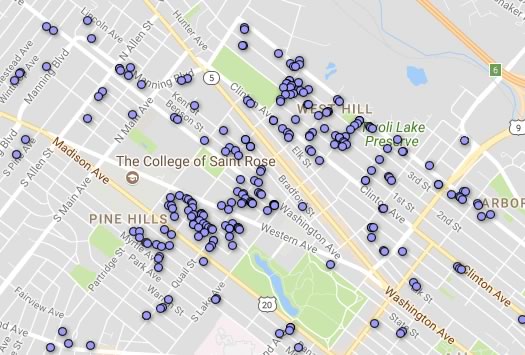
There's a clickable map at the top that shows the properties hit with snow shoveling violations -- click or scroll all the way up.
The top two neighborhoods -- as defined by Google Maps -- for violations were Pine Hills with 93 violations and West Hill with 83.
That's maybe not surprising. Both neighborhoods have a lot of rentals and a lot of sidewalks. But the fact that so many violations were clustered in two groups should at least prompt some attention on whether the rules are being uniformly enforced across every neighborhood.
"A lot of it is complaint driven," said Shea when we asked about consistent enforcement. "And those are neighborhoods where people walk. And we're going to continue to be responsive to those complaints."
What prompted the city to issue a violation?
The city records do back up what Shea said about complaints. The Department of General Services notes what drove the action to issue a violation. Not every violation has a notation for this field, but almost 90 percent do.
The vast majority of violations were driven by citizen complaints -- almost 67 percent -- according to the city records. And you can tack on another 4 percent for complaints that came in via SeeClickFix.
About 18 percent of violations were the result of a DGS "drive by." Back in September DGS commissioner Daniel Mirabile told Common Council members that crews will sometimes tag adjacent unshoveled properties when responding to a complaint. And if you look at the clickable map at the top, you'll see that many violations are clustered together in strings of properties.
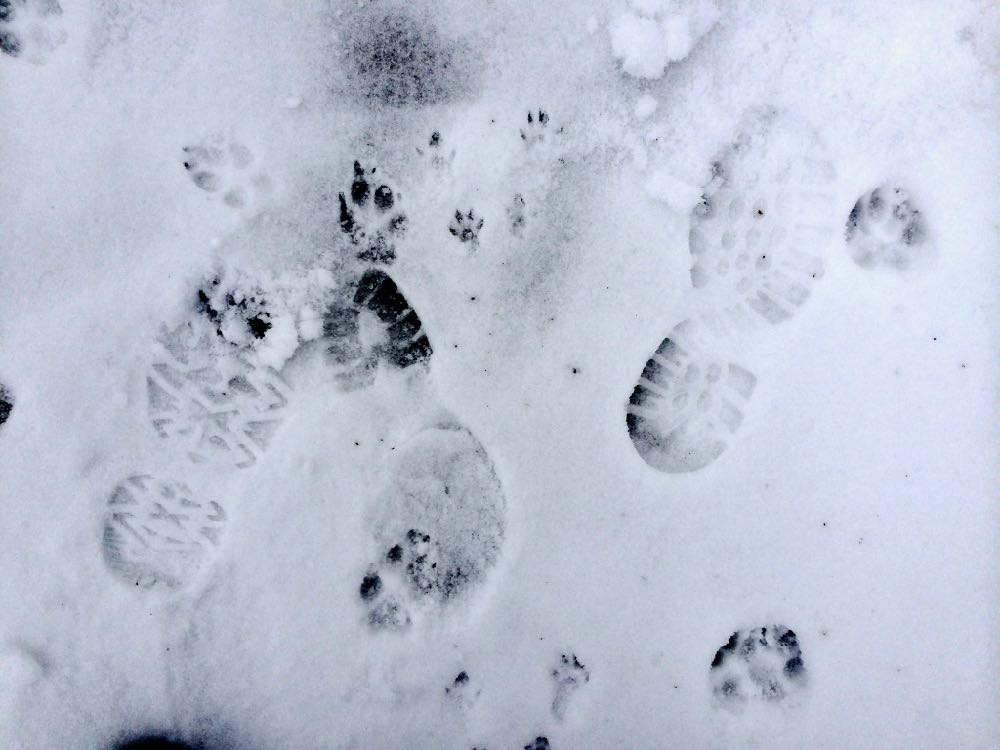
Repeat offenders?
There were relatively few repeat offenders listed in the city violation records. Just 23 of 317 parcels -- about 7 percent -- were tagged with more than one violation. They collectively represented 49 violations -- about 14 percent of violations.
Similarly, the ranks of property owners with multiple violations was also relatively small -- just 34 of 287 property owners. And a chunk of those property owners with multiple violations were people who got hit more than once at the same time for multiple properties. For example: 44 Holland Avenue, LLC -- which owns the vacant Tudor-style homes along Holland Ave -- was hit with 6 violations, one for each building, a week after the blizzard this past March.
One property owner did stick out a bit, though: Albany County. It racked up 8 violations at multiple properties in multiple neighborhoods on multiple dates in 2015. The properties weren't county buildings per se, but rather properties -- five of them vacant lots -- which had been seized.
The county has not been tagged for a snow shoveling violation since then. And four of those properties have been transferred to the Albany County Land Bank, an independent org whose mission is to better manage the transition of properties from being seized and vacant to being sold and occupied.
"We strive to ensure that all of our properties are maintained to our high standard and that includes that snow be removed in accordance with local regulations," Adam Zaranko, the executive director of the land bank, said when we contacted him about how the org stays on top of shoveling at its more than 380 properties around the county. "We do our best to lead by example and be good neighbors and good stewards of our properties since we hold our buyers to the same standard."
Zaranko said the land bank hires a private contractor to do snow removal -- it just issued an new request for proposals this month -- a setup he says has worked well so far. And he said if a property slips through the cracks, it's addressed as soon as it's found or reported.
The bottom line
1. Shovel your sidewalks, or arrange to have them shoveled.
2. If a neighbor isn't shoveling and you're comfortable talking with them about it, ask what's up. Maybe neighbors can lend a hand.
3. If there's a problem property in your neighborhood that's not shoveling, pick up the phone (518-434-2489) or file a ticket on SeeClickFix. The city's system of issuing violations is almost entirely driven by complaints.
Earlier
+ A proposal to tighten the grace period in Albany for clearing snowy sidewalks
+ Miss Pearl: What should I do about the neighbors who don't shovel their sidewalk?
Say Something!
We'd really like you to take part in the conversation here at All Over Albany. But we do have a few rules here. Don't worry, they're easy. The first: be kind. The second: treat everyone else with the same respect you'd like to see in return. Cool? Great, post away. Comments are moderated so it might take a little while for your comment to show up. Thanks for being patient.
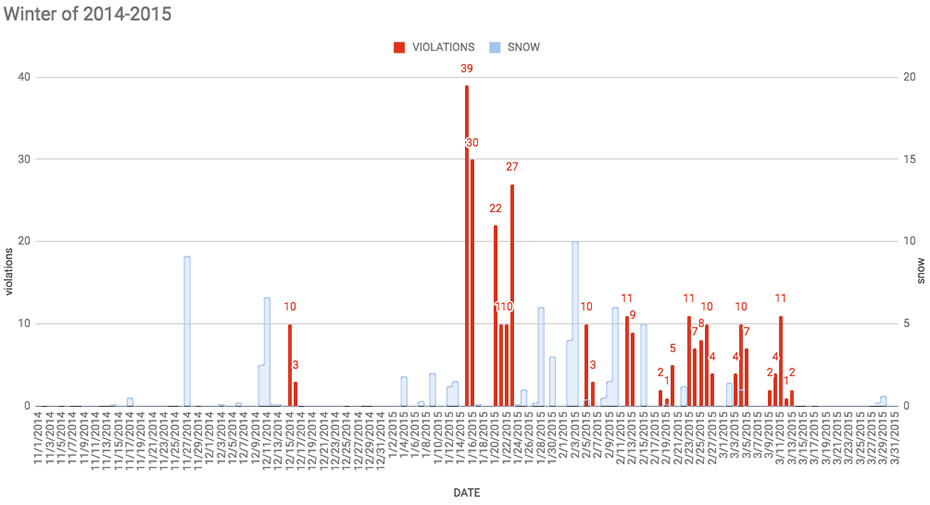
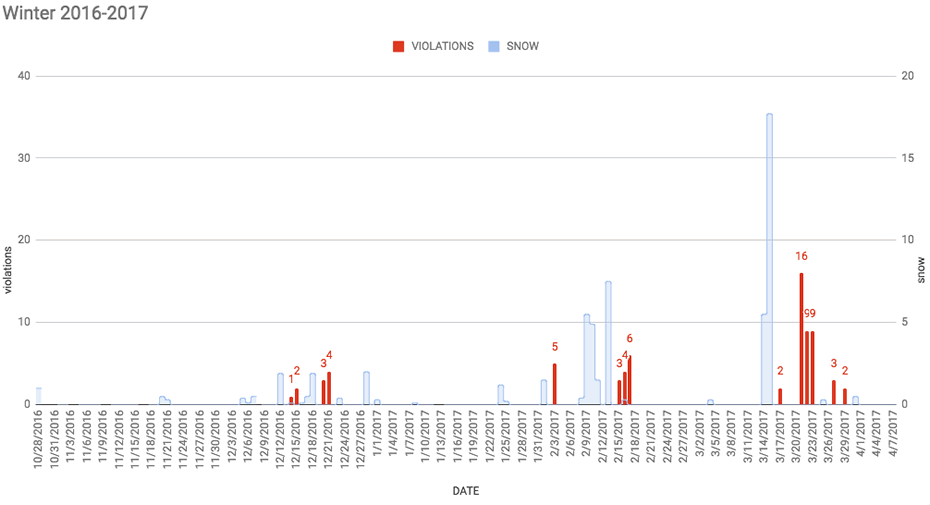
Comments
It looks to me like they might be targeting landlords and business on purpose. Over the last three years I've complained about areas in the Helderberg neighborhood. It's always the same people and they never get addressed. No surprise they are not on this map.
I always give people a few days and I never complain if I know that an elderly person lives there.
... said K on Nov 21, 2017 at 3:48 PM | link
This is frustrating because there are TWO property owners on our street which are habitually neglectful of shoveling duty - yet they don't show up at all on the map despite, on average, 3-4 complaints a season for unshoveled sidewalks. Both were posted, neither ever cleared the snow. Makes me very suspicious of the data set.
... said daleyplanit on Nov 21, 2017 at 4:12 PM | link
"1. Shovel your sidewalks, or arrange to have them shoveled."
2. The city plow piles snow back up on the sidewalk, so high even the steps are covered, with snow that's heavier and more compacted than all the snow I had previously removed.
3. Goto 1.
How many times am I expected to repeat this? Right now, it's every few hours.
Should I just clear them, document it with photos, then say, wait an hour or 2 for them to cover the sidewalk, demand they "TICKET ME", so I can sue them, then STILL have to clear it again, because I'm not a jerk?
... said Mike Lieman on Nov 22, 2017 at 12:59 AM | link
@K / daleyplanit: One of the things that we can't tell from the violation records -- and would be good to know -- is 1) how many properties have complaints made about them and 2) of the properties for which complaints are made and they are given notice, how many of them are followed up by the city after the second 24-hour period. The new rules are supposed to streamline the violation process so that DGS doesn't have to go past a property twice. It will be worth watching that if leads to more properties actually being issued violations.
@Mike: Have you talked with DGS about this problem? (518-434-2489) You might have more success taking up the issue now rather than later when DGS is dealing with snow.
... said Greg on Nov 22, 2017 at 9:07 AM | link
Great data. Thank you for doing the FOIL and analysis. Would be nice if the city itself did this sort of obvious analysis.
You've converted me from an opponent of the new law to a supporter.
One odd fact coming out of this is that although two high-rental neighborhoods (the student areas of pine hills and west hill) have a lot of violations, other high rental areas don't. Just a guess but I would wager these other neighborhoods aren't getting reported on - probably just as many violations though.
Excellent work ALA.
Now we need to hope the city actually enforces this fairly (ha ha ha ha...) Well we can hope.
... said Brian on Nov 22, 2017 at 9:25 AM | link
I totally agree with DaleyPlanit.
I have submitted numerous complaints through the DGS website and none of them showed up on your map. Lark Street has a few bad landlords (East side of the street) who just don't give a crap and never clean their sidewalks. I just don't believe the data either. I have a feeling there are lots more complaints that never got into the official system.
... said Harriet on Nov 22, 2017 at 11:04 AM | link
FYI.. senior star exemption criteria are based on income and it’s very low. Not a good criterion for this analysis as a proxy for all seniors.
... said Jules on Nov 23, 2017 at 9:22 AM | link
Can we get the city to ticket it's own parks department for failing to clear the sidewalk on Fuller Rd at the Rensselaer Lake park? The Amtrak/CSX property next door is another big offender.
... said Zef on Nov 25, 2017 at 10:24 AM | link